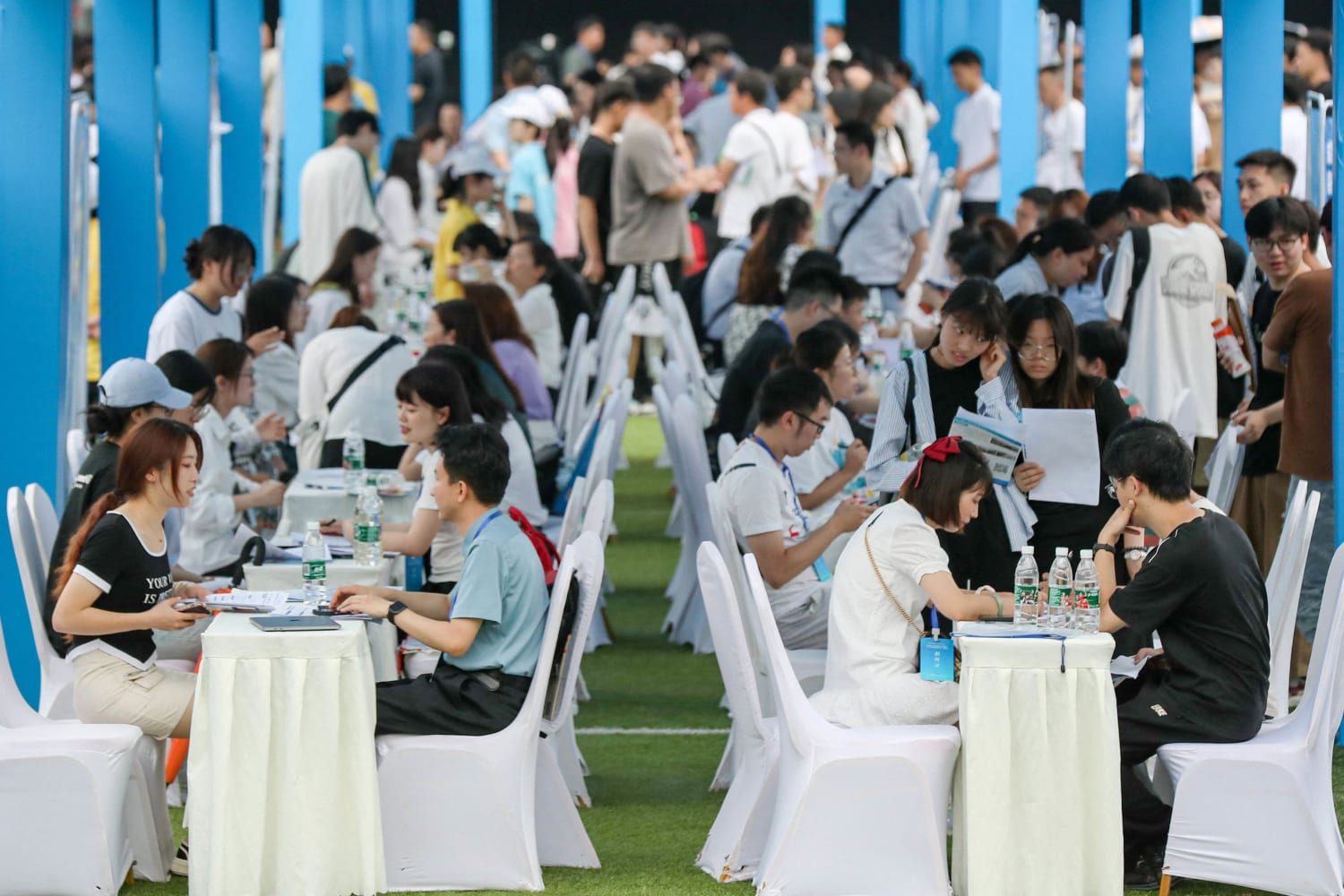[ad_1]

The pandemic has suppressed job creation even further while encouraging students to stay in school as long as possible, pursuing more advanced degrees.
“Accordingly, the young generation find it more and more difficult to find their dream job or even full-time employment,” Mao said.
In social media posts, new job seekers express their anxiety about the future with mock graduation photos that show them trashing their diplomas or lying face-down on the ground in despair.
Others are trying not to leave school at all, hoping to retain the appeal of a new graduate prized by increasingly popular and competitive public sector employers. Many see government jobs as less demanding and more stable in an uncertain and stressful time.
According to a survey of college students published last month by the newspaper China Youth Daily, almost three-quarters of respondents said they knew one or more people who had chosen to delay graduation. One of the most commonly cited reasons was so that they could “keep their fresh graduate identity.”
Employers, especially those in the public sector, are seen as favoring new graduates. With government jobs offering stability in an uncertain time, many are choosing to retain that status
At a job fair this month at a shopping center in suburban Beijing, a mostly young crowd inquired at booths for companies in insurance, real estate, packing and transport.
Zhang Bo, 22, is one of almost 11.6 million new college graduates entering China’s labor force this year, an increase of 820,000 from 2022. He said the job market was difficult for newcomers like him.
On recruitment apps, he said at the job fair, “many companies only read and do not reply to applicants’ messages. Or even if that’s not the case, a job opening will close in one day or two after being released.”
There are more job seekers fast on Zhang’s heels. According to Chinese state media, this year a record 12.91 million high school seniors took the gaokao, a grueling two-day national exam that determines where they’ll attend university, or if they’ll attend at all.
Sun, the recent graduate, says she expects competition to become less intense as the government makes policy adjustments and China’s population continues to decrease.
But that is of little consolation to her and her friends: Of her six roommates from university, who majored in different subjects, four of them have still not found jobs.
“The pandemic really ruined the economy and impacted our generation negatively,” Sun said. “I feel like we are the generation that has been abandoned.”
Janis Mackey Frayer, Riley Zhang, Abigail Williams and Luna Huang contributed.
[ad_2]
Source link
